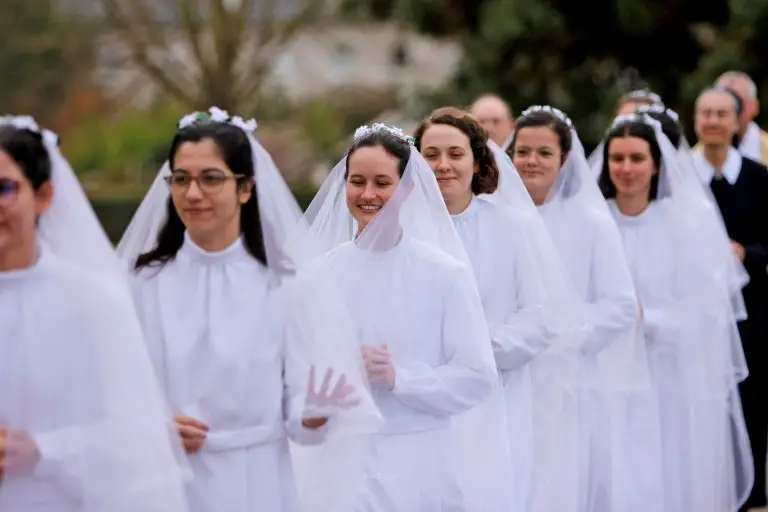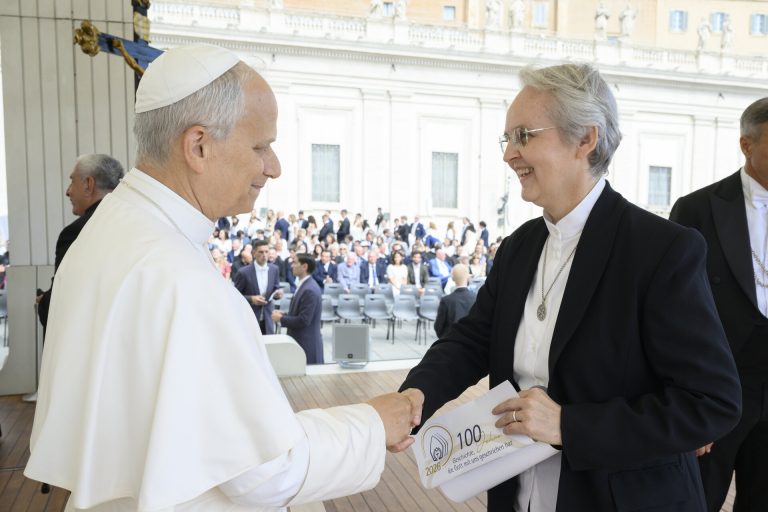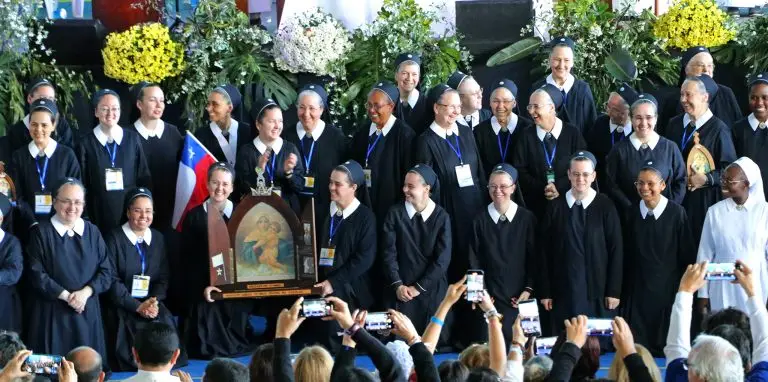On October 11, the Schoenstatt Sisters of Mary officially inaugurated the jubilee year in Poland with a solemn symposium under the motto “Mary, Light of Our Hope.”
The symposium was characterized by gratitude and identity. It was a reflection on the current challenges facing human beings, including consecrated persons, and a look back at the history and work of God during the community’s 100 years of existence. It also reflected on fidelity and whether what God placed in the heart of the founder, Father Joseph Kentenich, is being fulfilled. This was emphasized by the provincial superior, Sister M. Elwira Kędzia, in her welcoming address: “Mary, light of our hope! In her radiance, we want to contemplate our community in the different dimensions of its special vocation and shape the ideal of womanhood according to the model of Mary. (…)”
It was a great joy and honor that the president of the Otwock district, Tomasz Laskus, along with representatives of the Otwock municipal administration, participated in the symposium. They congratulated the provincial superior on the anniversary and thanked her for the fruitful collaboration with the Institute.
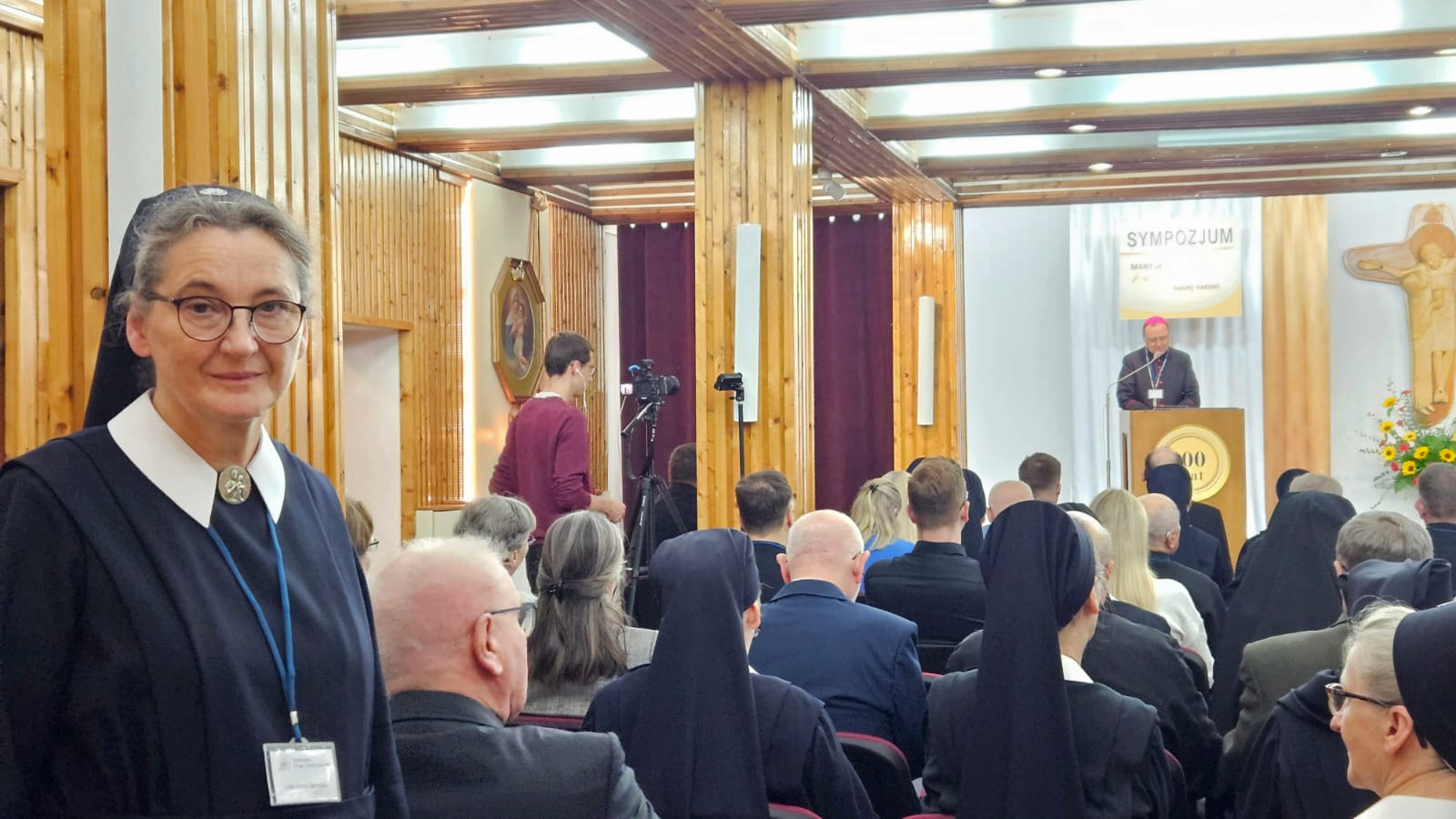
Mgr. Jacek Grzybowski: A view from the bioethical perspective
The first speaker was Bishop Jacek Grzybowski of the Diocese of Warsaw-Prague, who presented a broad overview of current existential challenges. The bishop outlined them from the perspective of modern bioethics and addressed, among other topics, the admissibility of abortion for psychiatric or social reasons, medical and social sex changes, the consequences of in vitro fertilization, issues related to artificial intelligence, the problem of persistent therapies, the lack of recognition of the dignity and right to life of the elderly, transhumanism, and the issue of sexual relations with minors (pedophilia).
According to the bishop, in this context, women, including those consecrated to God, have the enormous task of building interpersonal relationships that consider the good of people and contribute to creating environments based on Gospel values. The speaker emphasized that, as it celebrates its anniversary, the community of sisters must keep up with the times while also listening to the heart of God to face the challenges the future will bring, in all their complexity. (…)
Paths to the formation of a “new woman”
Next, the general director of the Schoenstatt Sisters of Mary, Dr. Bernd Biberger, gave a speech in which he presented the image of the “new woman,” understood not only as a new lifestyle, but also as a new way of being, based on union with the heart of God and Mary. The “new woman” that Father Kentenich envisioned for the world is manifested in daily life, transformed into holiness, characterized by the power of sacrifice and unconditional unity, which shape the culture of life, educate younger generations, and strengthen the community. The “new woman” is also a mission for each Sister of Mary, in which, through spiritual discipline, prayer, and service, she becomes a co-creator of a civilization of love.
After a break that concluded with the Angelus prayer, Sister Dr. M. Estera Balcer, ISSM, gave a reflection entitled “The Role of Self-Formation (Self-Education) in the Formation of a Sister of Mary’s Identity.” Her presentation emphasized that difficult times require people with strong character to guide humanity safely through the vicissitudes and challenges of today. Self-formation is a conscious and independent process of formation of character, spirituality, and identity. Working on oneself is crucial in the life of every person and especially for a person consecrated to God, a Sister of Mary, who must be a witness to God in today’s world.
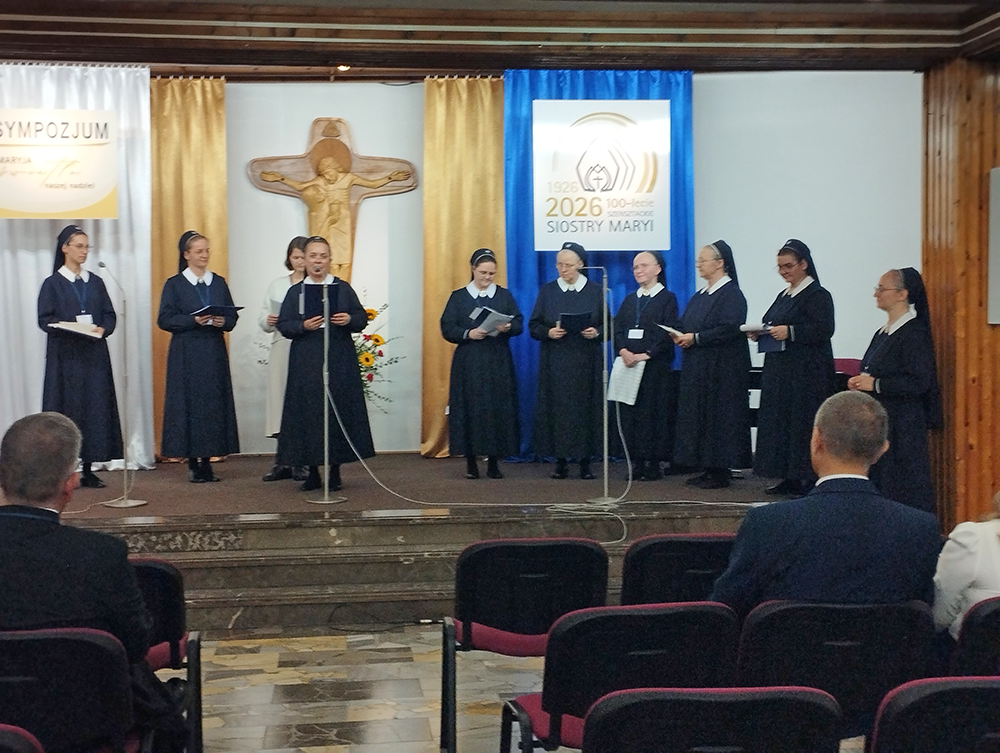
Roots secure the future
In the following presentation, Sister Dr. M. Marcelina Migacz, ISSM, presented the topic “100 Years of History of the Institute of the Schoenstatt Sisters of Mary.” The central idea of her presentation was that knowing our own roots helps us understand who we are, where we come from, and what values accompany us. Knowledge of traditions, values, and cultural narratives can enrich our creativity and our sense of belonging. Historical memory shapes identity and responsibility based on the legacy of previous generations. History does not begin with us. It is more like a relay race, in which one generation works for the next and passes on the goods, values, and culture it has acquired. Thus, each generation becomes both heir and donor. Is 100 years a long time or a short time? The participants answered this question by listening to the sacred history of the community of sisters, presented briefly but competently.
The last presentation, of a testimonial nature, was given by Magdalena and Dominik Szczudrawa, who have been married for more than 20 years and have three children. They have been involved in the Schoenstatt Movement for many years. They belong to the Apostolic Family Federation in Poland, where they are trained and participate in the life of the Warsaw district community. In their presentation, entitled “Our experience of the common path in the Covenant of Love with the Schoenstatt Sisters of Mary,” they shared concrete examples of a deep consecrated life in the family, which is inspired and supported by the path of the Covenant of Love and the spiritual connection with the MTA shrine. The Sisters of Mary of Schoenstatt have accompanied them for years in their formation, and their influence on the deepening of the spiritual and ascetic life of the Szczudrawa family should not be underestimated. Numerous examples were mentioned, and the joy of the common spiritual journey in covenant with Mary was highlighted.
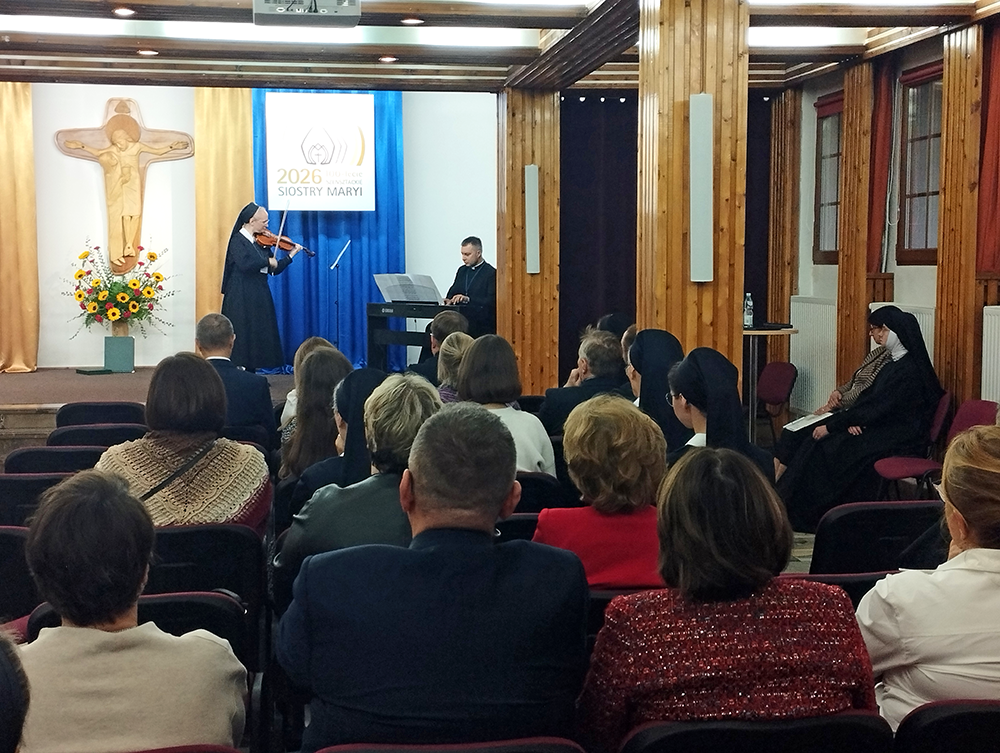
“Mary, light of our hope”
The thematic part of the symposium concluded with a brief roundtable discussion and a beautiful musical accent: a tribute to Mary performed by the Sisters’ choir under the direction of Sister M. Zoja Dombrowskaya, who also played two pieces on the violin.
The symposium concluded with a solemn Eucharistic celebration, officiated by numerous priests, including Bishop Romuald Kamiński. The celebration was presided over by Archbishop Adrian Galbas, delegate of the Schoenstatt Movement to the Polish Bishops’ Conference, who also gave the homily.
We thank God for this time of grace, the time of the jubilee. We trust that it will help our community to deepen our union with God and with one another, and that Mary, the light of our hope, will ask for the fullness of jubilee graces for the whole community. Please celebrate with us!
More information about the Sisters of Mary: s-ms.org/en
Translation: Sr. M. Lourdes Macías

